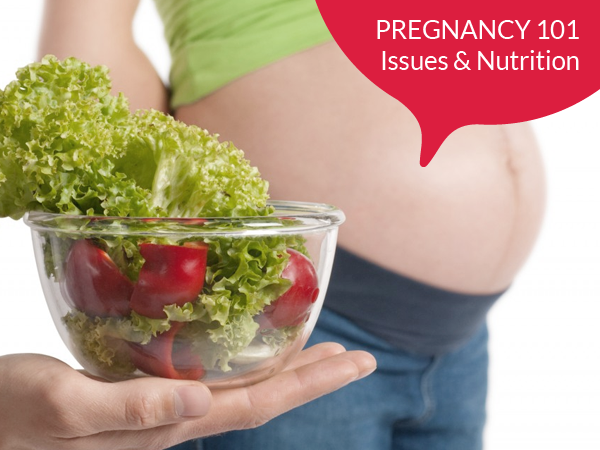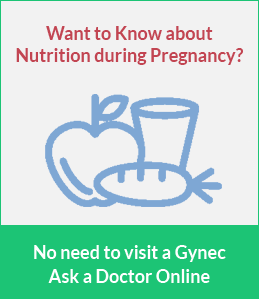 Usually, pregnancies are unplanned, so in that case as soon as the first period is missed; within 5 to 10 days of missing period the lady should consult a gynecologist/obstetrician regardless of the fact that she has had a regular or irregular menstrual cycle. Get your pregnancy confirmed.
Usually, pregnancies are unplanned, so in that case as soon as the first period is missed; within 5 to 10 days of missing period the lady should consult a gynecologist/obstetrician regardless of the fact that she has had a regular or irregular menstrual cycle. Get your pregnancy confirmed.
Once confirmed, she is asked to get few clinical investigations done like hemoglobin levels, blood group, urine examination and serological tests for diagnosing any occurrence of Rubella, Hepatitis B virus and HIV in the pregnant woman. Patients are also screened for Thalassemia, Thyroid profile, blood sugar profile and serum vitamin B12 and D levels.
For the first three months only folic acid and some anti-emetics are given. In case of a healthy female, from the beginning of the fourth month onwards she is prescribed iron and calcium supplements. Iron tablets may cause gastric upset, but they are usually tolerable. In case, she cannot handle the side effects of iron tablets, many salts of iron are available so she can be prescribed another form of iron supplement or in liquid form. For those who cannot tolerate iron at all or those who are anemic and far from their due date, injectable iron supplement can be given to such patients. In case, a patient has any other medical problem she is prescribed the medicines by her physician in consultation with her obstetrician keeping in regard to the safety of the drug during pregnancy.
Patient should never self-prescribe any medicines, even for cough and common cold.Pregnant patients may experience some minor ailments during pregnancy, which are due to pregnancy and rarely requires medication. During the first three months of her pregnancy, she might have nausea (morning sickness), altered taste of food and vomiting. This is normal and tends to be highest during second to third month. If needed anti emetics are given.She may experience backache, leg cramps. To relieve from such body cramps during pregnancy, sufficient rest, antenatal exercises and physiotherapy are helpful, no need of analgesics unless prescribed by the examining doctor. Antenatal exercises should be done under the guidance of your gynecologist or a certified Women’s health counselor or a physiotherapist. These exercises may also guide the pregnant woman and prepare her for childbirth.
She may also face increased frequency of urination (urinary incontinence), constipation, acidity and heart burns, ankle edema (swelling of ankles or feet) and vaginal discharge. Very few patients might have varicose veins or piles or breast engorgement. In case, of any such discomforts experienced by the pregnant woman, one must immediately consult the doctor and get appropriate medical attention and treatment.
Pregnancy and Nutrition:
The pregnancy diet ideally should be light, nutritious easily digestible. It needs to be rich in protein, minerals and vitamins. The diet should consist in addition to the principal food elements, at least half to one liter of milk or milk products (1 liter of milk contains about 1 gram of calcium), plenty of green vegetables, fruits, dry fruits in moderate amounts regularly. The increased calorie requirement is to the extent of 300 over the non-pregnant state during second half of pregnancy. Woman with normal BMI can gain about 11 kg. during whole pregnancy. Out of those 11 kg. – 1 kg during first three months and 10 kg within rest of six months.
Overweight women with BMI 26-29 should try to limit their weight gain to 7 kg and obese women (BMI>29) should try to manage their weight gain as it may affect the baby’s health too. Patients should eat dairy products, grains cereals, cooked meat and eggs, citrus fruits, tomatoes, nuts. Avoid eating food on streets or even in hotels, any food that can make prone to contracting food or water borne infections. It is advisable to eat home cooked, nutritious food during this period. Drink clean purified water. Avoid consuming alcohol, tobacco, smoking or infesting any kind of recreational drugs.
A pregnant woman may continue her usual activities throughout the pregnancy unless medically advised otherwise. Avoid strenuous physical activity or mental stress of any sort, especially in first three months and last 1 month of the pregnancy.
The pregnant lady should wear loose but comfortable garments, shoes with high heels should better be avoided and constricting belts around the belly too.
Normally, sex is not restricted during pregnancy but those who are at increased risk of miscarriage or preterm should avoid it.






,